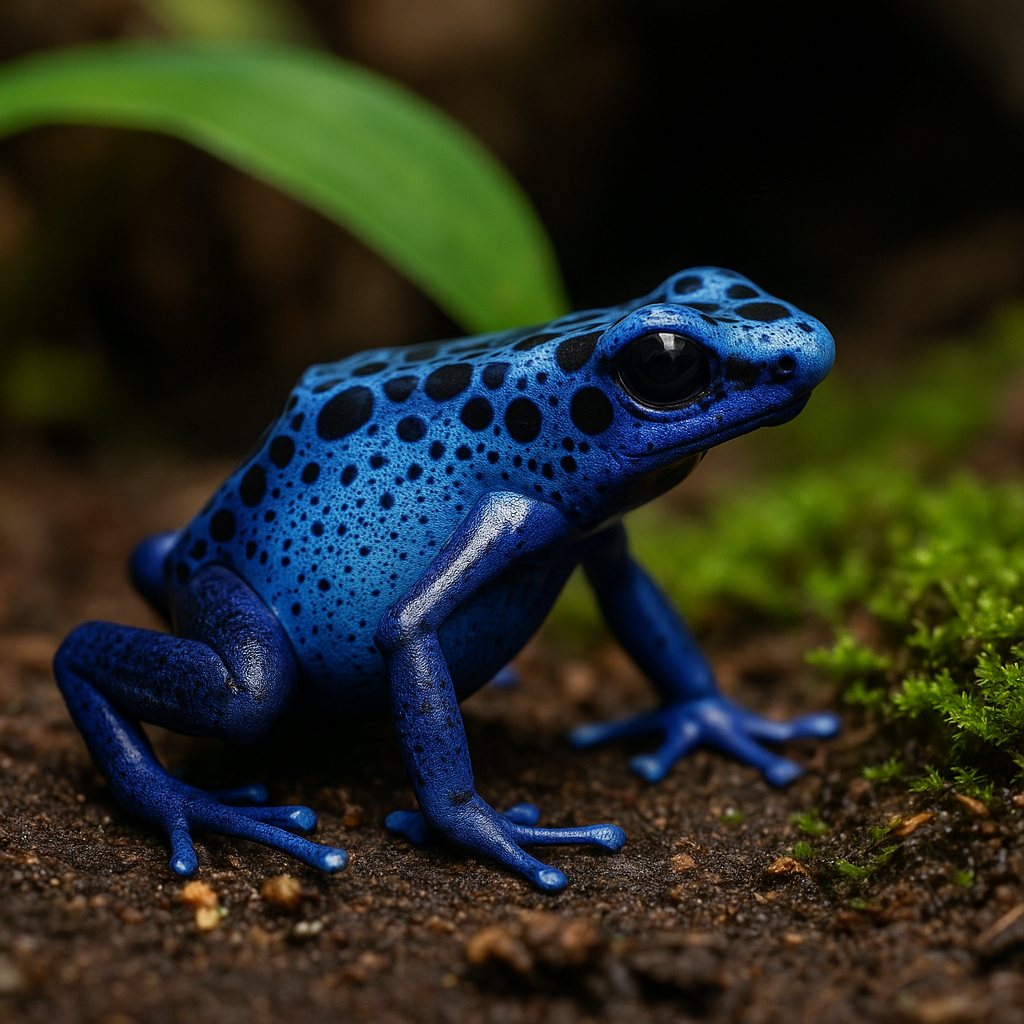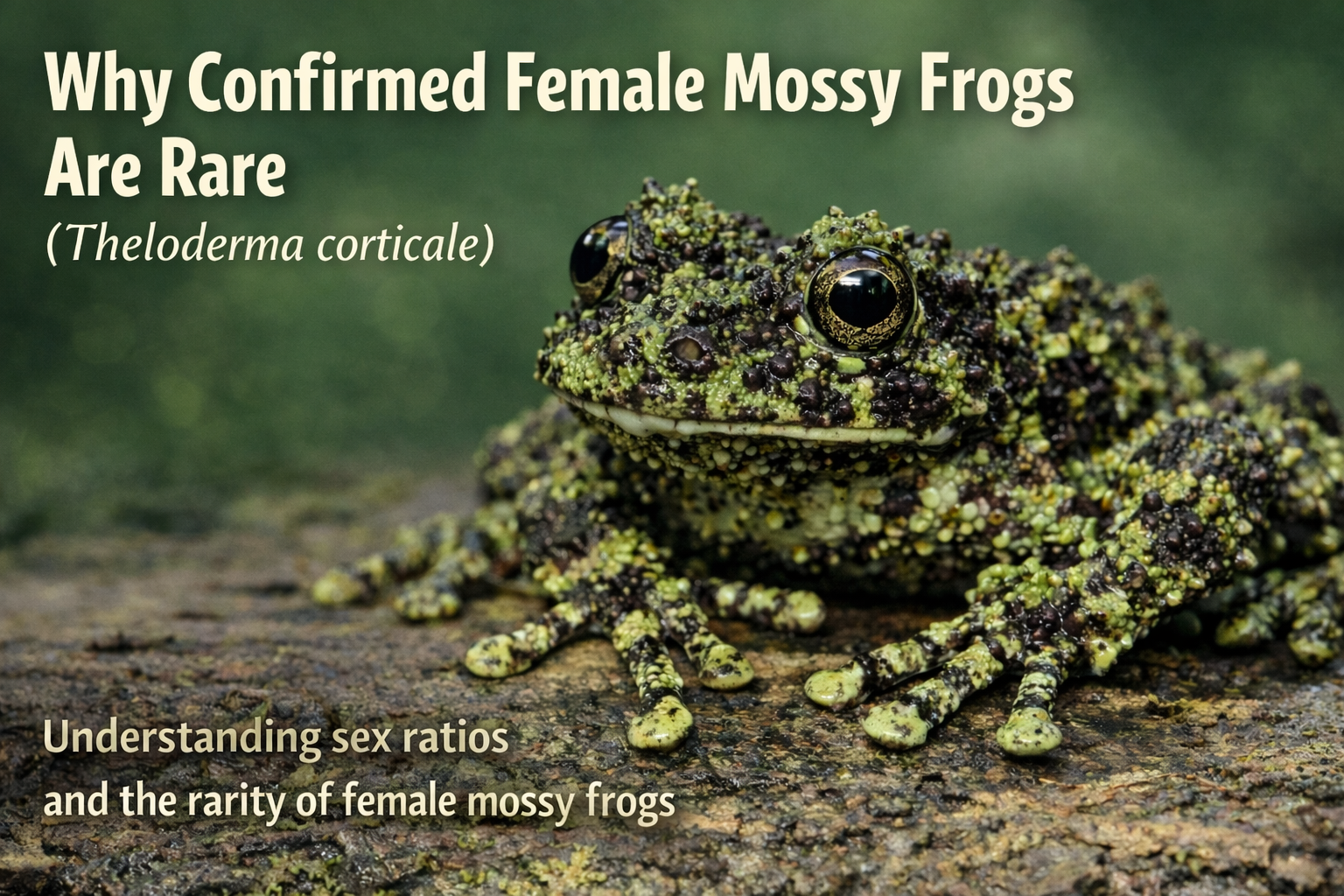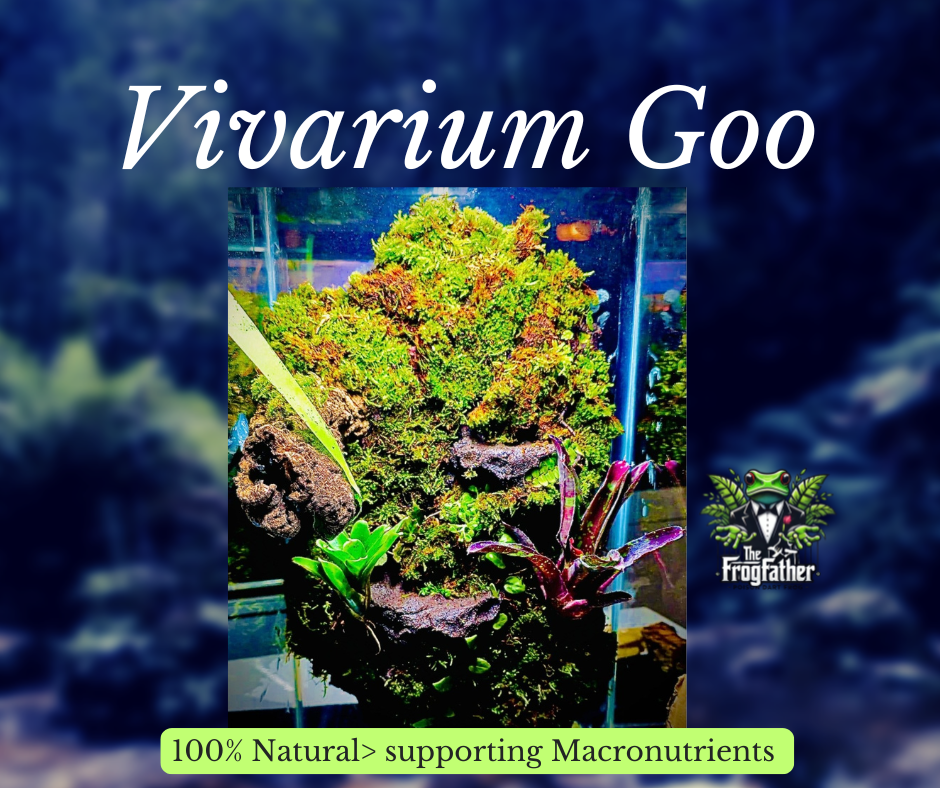Are Blue Frogs Poisonous in the UK?
One of the most common questions from new keepers is whether blue dart frogs — particularly Dendrobates tinctorius ‘azureus’ — are poisonous in captivity. The short answer: not in the UK, and not when bred and raised properly. Let’s break it down.
Wild vs Captive
In the wild, dart frogs consume a diet of ants, mites, and other tiny arthropods that provide alkaloid toxins. This is what makes them poisonous. In captivity, UK keepers feed fruit flies, springtails, and crickets — none of which contain those alkaloids. Over generations, captive dart frogs have completely lost their toxicity.
Handling Safety
Even without toxicity, frogs should be handled minimally. Their skin is sensitive, and oils or chemicals from human hands can harm them. Use gloves if moving them is essential, and always prioritise their welfare.
Misconceptions
Some articles still scare people into thinking captive dart frogs pose a danger. The truth is that UK-bred azureus dart frogs are completely safe to keep. The only ‘danger’ is improper husbandry — poor humidity, bad diet, or lack of supplementation.
Takeaway
No UK keeper needs to worry about poison from their dart frogs. Focus on diet, enrichment, and stable enclosures — and you’ll enjoy these jewel-bright frogs for years to come.



